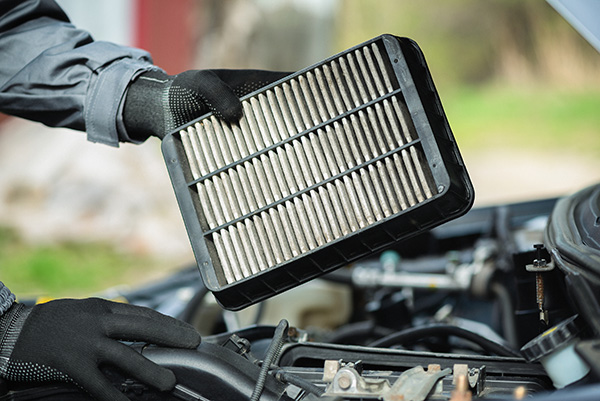
Your car relies on a steady stream of clean fuel to run efficiently. But what happens when that flow is disrupted? One often overlooked component that can significantly impact your car's performance is the fuel filter. This part ensures that dirt, debris, and impurities don’t make their way into your engine. However, over time, the fuel filter gets clogged, which can lead to a range of performance issues. So, can a clogged fuel filter really affect your car's performance?
How a Fuel Filter Works
Before diving into the symptoms of a clogged fuel filter, it’s helpful to understand its role in your vehicle. The fuel filter acts as a barrier between the fuel tank and the engine, trapping contaminants and particles that can cause damage to the engine. Every time you fill up your gas tank, there’s a chance that small amounts of dirt or rust could be mixed in with the fuel. The fuel filter’s job is to catch these impurities before they enter the fuel injectors and the engine itself.
Over time, as the filter does its job, it can become clogged with debris. Think of it like a coffee filter that gets slower as it catches more ground; eventually, it needs to be replaced. If not, a clogged fuel filter can reduce fuel flow, which leads to a host of problems.
Signs of a Clogged Fuel Filter
Now, let’s get to the real question: How can you tell if your fuel filter is clogged? There are several telltale signs that your car may be suffering from a restricted fuel flow.
Difficulty Starting the Engine
If your car is having trouble starting, especially first thing in the morning or after it’s been sitting for a while, a clogged fuel filter could be the reason. When the fuel filter is blocked, it limits the amount of fuel reaching the engine, making it harder for your car to start. You may hear the engine cranking, but it struggles to actually turn over. This symptom is often mistaken for battery or starter issues, but a restricted fuel flow is sometimes the real problem.
Loss of Power During Acceleration
Have you noticed your car hesitating or lagging when you step on the gas? A clogged fuel filter can cause a significant drop in power, especially when you’re trying to accelerate. When you hit the gas pedal, your engine demands more fuel. If the fuel filter is blocked, it restricts the flow of fuel, causing your car to feel sluggish or unresponsive. You might find that your car is fine during idle but loses power under load, like when climbing hills or passing other vehicles.
Frequent Engine Stalling
Another common sign of a clogged fuel filter is engine stalling. Your car might start up just fine but then randomly stall out while driving. This happens because a clogged fuel filter can cause inconsistent fuel pressure, leading to irregular combustion. If you notice your car sputtering and stalling, especially at low speeds, it’s worth checking if your fuel filter needs replacing.
Impact on Fuel Efficiency
If you’ve noticed that your trips to the gas station are becoming more frequent, your fuel filter could be to blame. A clogged filter forces the engine to work harder than usual to get the fuel it needs. This extra effort means your car burns more fuel, reducing overall fuel efficiency. So, if your fuel mileage has taken a sudden dip, it might be time to consider checking the fuel filter.
Engine Misfires and Rough Idling
When your engine isn’t getting a consistent flow of fuel, it can lead to engine misfires. These are often experienced as a jerking or shuddering feeling while driving, particularly at higher speeds. Misfires occur when the fuel-air mixture in the combustion chamber is either too lean or too rich due to irregular fuel flow. A clogged fuel filter disrupts this balance, leading to rough idling and even misfires that can damage your spark plugs over time.
Noticing strange symptoms like engine misfires or stalling? Let our team at Gil's Garage Burnt Hills take a look. We will help diagnose and fix fuel system issues to keep your car in top shape. Call us today!